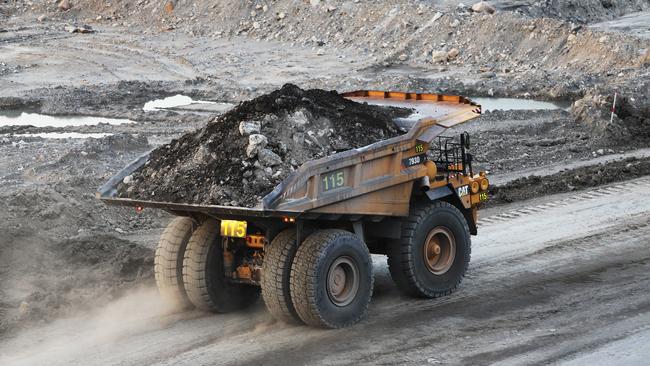Casual mine workers earn less, report finds
Data showing casual workers in Queensland’s coal-mining industry are earning less than their permanent colleagues has been seized on by the industry’s union as proof casualisation should be reduced.

QLD News
Don't miss out on the headlines from QLD News. Followed categories will be added to My News.
Casual workers in Queensland’s coal-mining industry are “consistently” earning less than their permanent colleagues, a confidential federal government document has revealed.
The data, collated by the government’s Coal Mining (Long Service Leave Funding) Corporation, has been seized on by the industry’s union as proof reducing casualisation needs to be the centrepiece of industrial relations reform.
The Coal LSL document, obtained by The Courier-Mail¸ collated six years of wage data up to July 2018 to compare the earnings of full-time workers with casual workers in the black coal-mining sector.
“(This) shows a consistent gap between the wages of casual workers and full-time workers in the industry,” the document stated.

CFMMEU mining and energy branch general president Tony Maher seized on the data, saying claims by mining companies and the federal government that casualisation isn’t widespread or mine workers chose it was “gaslighting”.
“All mineworkers can see what’s happening around them. Thousands of jobs have been casualised and there aren’t any permanent jobs on offer any more,” he said. “These statistics from the coal long service fund confirm this fact.”
This comes amid the imminent release of the High Court’s decision that will cement whether long-term casuals who work regular and systematic hours should be considered permanent employees under law.
Labour hire firms in the mining industry, in an ongoing senate inquiry into the issue, have said less than 1 per cent of their workforces are seeking to convert from casual to permanent employment. They have also said a portion of permanent workers want to become casual because of the higher pay.

One Key Resources managing director Ben Lewis told the hearing in July that conversions were “one or two or three” a year and represented less than 1 per cent of the firm’s workforce.
“Interestingly … we actually have approximately the same number of requests to convert the other way – where people who are fixed-term or permanent have requested to engage casually,” he said.
The Coal LSL document warned that the wage data did not account “for the many factors that affect earnings” and should be taken with caution.




